Incoloy 625 steel Plate is an alloy of nickel, chromium and molybdenum, popular for its great endurance, strength and ability to function well in severe environmental conditions. This manual provides a comprehensive account of Inconel Alloy 625 plates and sheets, focusing on their unique properties, applications and advantages. If you are involved in the aerospace industry, shipping industry or chemical processing among others that call for materials that can withstand severe working environments then Inconel 625 may be a very important factor in this respect. Our intention is to equip you with a deep understanding of why this alloy is highly respected as well as details about how it’s made and the various uses it has.
What is Inconel 625 and Why is it Popular?
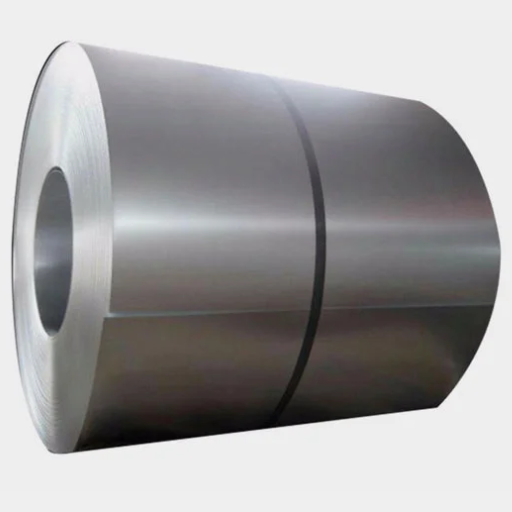
Image source: https://www.jainexsteel.com/
Inconel 625 is a nickel-based superalloy which possesses exceptional mechanical properties and resistance to many corrosive environments. It has been widely used because of its high tensile, creep and rupture strengths combined with excellent fatigue and thermal-fatigue resistance. This makes it the material of choice in sectors like aerospace, marine and chemical processing where exposure to seawater or elevated temperatures poses challenges such as oxidation or corrosion. The versatility as well as longevity of Inconel 625 ensure that it will still find applications where there’s need for high reliability and performance under harsh conditions.
In-depth Look into Inconel 625 Chemical Composition
The main components of Inconel 625 are nickel and chromium, with approximately 58% and 20-23%, respectively. Molybdenum (8-10%) and niobium (3-4%) also make up a substantial part of the alloy, which in turn accounts for its exceptional strength as well as its resistance to corrosion and oxidation. Moreover, iron (5%), cobalt (max 1%), manganese (max 0.5%), silicon (max 0.5%) along with small amounts of carbon, phosphorus, sulfur exist in the alloy. As a result, it offers great integrity within intractable surroundings and can be used extensively where high stresses are expected.
Key Mechanical Properties of Inconel 625
Inconel 625 is popular due to its extraordinary mechanical characteristics such as strong tensile strength, excellent resistance against fatigue and thermal fatigue along with superior creep and rupture strengths. Some of the key mechanical characteristics that belong to this superalloy include:
- Tensile Strength: With specific processing methods or conditions including annealed state or solution treated status, Inconel 625 demonstrates enhanced tensile strength ranging from about 120 to160 ksi(827-1103 MPa).
- Yield Strength: Materials begin deforming plastically when stress at which they start doing so reaches yield strength which typically falls between approximately60 -100 ksi(414-690 MPa) for inconel625.
- Elongation: Because it has elongation values of typically between30% to50%, it shows good ductility when subjected to high stress levels hence making it highly resistant to fatigue failure.
- Hardness: The cast alloys have their hardness ranging around75to95 Rockwell B scale; while age hardened samples are usually expected to have a hardness close to120 HRB; therefore showing resistance against wear although lower than that demonstrated by fully hardened stainless steel varieties.
- Fatigue Resistance: The excellent fatigue properties remain even under cyclic thermal and mechanical loads, thus making Inconel 625 suitable for repeated loading applications.
- Creep Resistance: The alloy is known to have very high creep resistance and can withstand deformation at elevated temperatures and stresses for long time periods with no appreciable changes in shape.
These properties ensure that Inconel 625 remains a favored material in demanding sectors such as aerospace, marine, and chemical processing, where reliability under extreme conditions is paramount.
Common Applications of Inconel Alloy 625
Inconel Alloy 625 is in high demand for its remarkable characteristics, which makes it a vital substance in many demanding sectors:
- Aerospace Industry: Inconel 625 finds wide application in the aerospace sector as key components like exhaust systems, fuel lines, propeller blades and transition ducts. It has the capability to resist extreme temperatures and corrosive environment ensuring durability and reliability of major parts of aircraft.
- Marine Industry: Inconel 625 is commonly used in marine environments due to its outstanding resistance towards seawater corrosion. Propellers, wire ropes, mooring lines, submarine propulsion systems are among the things made from it as well as marine exhaust systems and sea water heat exchangers.
- Chemical Processing Industry: The alloy is resistant to various corrosive chemicals thus making it useful for chemical processing industries. Inconel 625 is applied in such equipment as heat exchangers, reaction vessels, distillation columns where strength and resistance to oxidizing /reducing media are essential.
All these applications indicate that Inconel 625 is versatile and reliable hence it’s preferred material tough challenging high performing environments.
How is Inconel Alloy 625 Manufactured?
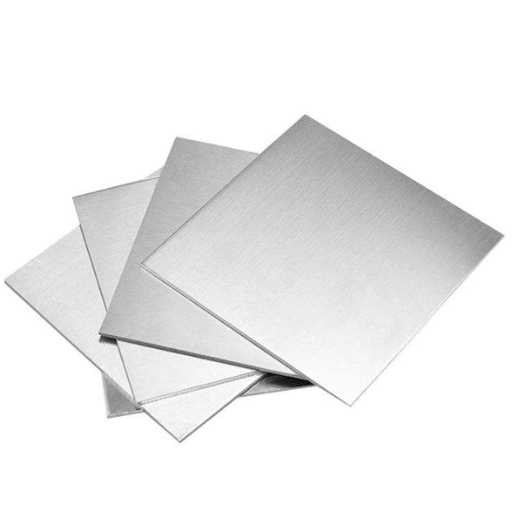
Inconel alloy 625 is built with the aid of an elaborate process that assures its superior performances. The major technique includes vacuum induction melting (VIM) and then vacuum arc remelting (VAR). These steps help in eliminating impurities which result into refined microstructure. The alloy can be cast or wrought after being melted using, for example, hot working or cold working techniques. Annealing and other similar treatments are done to attain desire mechanical properties and grain structure. Through this careful way, Inconel 625 retains its exceptional power, robustness to corrosion and adaptability for hard applications.
Production Process for Inconel Alloy 625 Sheets and Plates
Production of Inconel Alloy 625 sheets and plates entails a number of intricate steps aimed at giving it superior characteristics. Initially, the metal is subjected to vacuum induction melting (VIM) to create uniform melt and minimize contamination within the sample. This is trailed by vacuum arc remelting (VAR), which further refines the alloy through elimination of any residual impurities enhancing the microstructure.
Once it has been melted and purified, the compound gets casted or formed into slabs by hot and cold working methods combined together. Hot working takes place when material is rolled or forged down to desired thicknesses at temperatures between 1,800°F (982°C) – 2,200°F (1,204°C). For instance, cold working may be done so as to enhance mechanical properties while maintaining precise dimensions. Also annealing should follow these procedures in order to relieve any internal stresses arising from these processes resulting in optimum grain size.
Finally, stringent checks are performed on both sheets and plates to ascertain their adherence with set industry standards/specifications; one that facilitates their usage even under highly demanding circumstances.
Differences Between Hot Rolled and Cold Rolled Inconel 625
The principal disparities between hot-rolled and cold-rolled plates and sheets of Inconel 625 are their respective manufacturing processes and the properties of the resultant materials. At high temperatures, alloy goes through rolling that is called hot rolling which is usually applied at about 1800oF(982oC) –2200oF(1204oC). Casting grain structure is destroyed by this high temperature rolling process thus improving mechanical properties like ductility, toughness, grain size refinement. Comparatively, Hot rolled Inconel 625 has a poor surface finish and less accurate dimensions than its counterpart in cold rolled form.
However, the opposite can be said for cold rolling after primary hot working that is done at room temperature. The material’s strength is increased due to strain hardening during this process. Cold rolled Inconel 625 has a smoother surface finish than one that can be achieved with tight tolerance limits on manufacture. Consequently more appropriate for situations requiring accuracy and better quality surfaces (Sa’ed et al., 2015). Nonetheless, Unlike hot-rolled varieties of Inconel 625, the higher strength resulting from cold working may cause a decrease in ductility.
Both methods guarantee exceptional corrosion resistance of Inconel 625 as well as its ability to operate at high temperatures making it ideal for various demanding environments.
Standards and Specifications: ASTM B443 and More
Compliance with accepted standards and specifications for Inconel 625 ensures that the material complies with strict quality and performance demands. Among the leading standards available today is ASTM B443, which covers nickel-chromium-molybdenum-columbium alloy (UNS N06625) plate, sheet, and strip. This standard gives information on its chemical makeup, mechanical properties as well as dimensions which make it consistent and dependable when utilized in harsh weather conditions. Furthermore, AMS 5599 and AMS 5666 are both frequently used aerospace materials specifications for Inconel 625 specifically bars, forgings, rings etc. Following these requirements will enable Inconel 625 products to maintain their reliability and performance in industries such as marine propulsion, aerospace components manufacturing or chemical processing.
What are the Advantages of Using Inconel 625 Plates?
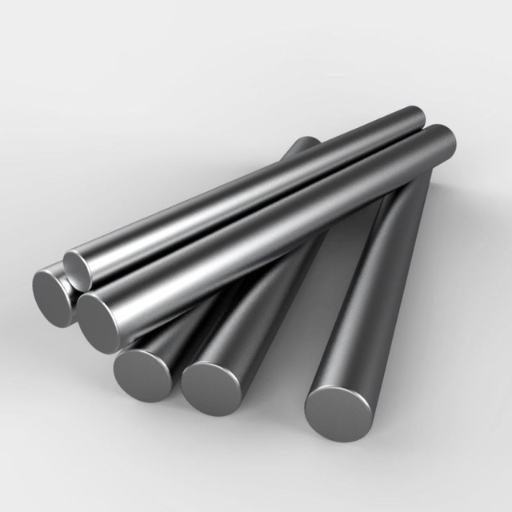
Inconel 625 plates have numerous key benefits that make them very attractive for use in demanding applications. Firstly, they have excellent corrosion resistance enabling them to be used effectively in tough environments such as marine and chemical processing industries. Their ability to retain strength at extreme temperatures makes them ideal for use in aviation industry where heat stability is of utmost importance. Additionally, Inconel 625 has the property of being fatigue resistant so it can withstand long-term loads without breaking down or stretching out over time . Its ability to be welded without cracking adds further flexibility to different construction projects. Above all these plates provide unparalleled high-temperature solidity durability against corrosive attack and upholding power when compared with other alternatives in this field.
Corrosion Resistance of Inconel 625
One of the outstanding features of Inconel 625 is its excellent corrosion resistance, which makes it applicable in difficult environments. Additionally, Inconel 625’s resistance to pit and crevice corrosion in chloride media as well as oxidation and carburization at elevated temperatures distinguishes it from other materials. Furthermore, even when exposed to severe conditions like seawater, acid environment or high temperature oxidization, Inconel 625 retains its corrosion resistant properties. Such industries as chemical processing, aerospace and shipbuilding require this material because they deal with corrosive elements all the time.
High Temperature Performance and Durability
Inconel 625 is unique due to its exceptional performance in high temperature making it desirable by industries experiencing extreme heat situations. This nickel based alloy maintains its mechanical properties up to temperatures of about 1,200°F (649°C) while tolerating higher ones for a short period. The alloy derives its strength from a special composition that includes nickel, chromium and molybdenum among others. These elements make it resistant to oxidation and carburization at high temperatures. Furthermore; thermal cycling stability allows Inconel 625 resist cyclic stress or fatigue that enhances durability under high stress conditions. Therefore long-term reliability is guaranteed under such thermally cyclic conditions which are very important for industries like power generation, aerospace and chemical process applications especially for instance.
Comparison to Other Nickel Alloys
Regarding other nickel alloys; Inconel 625 performs better in many challenging environments. Inconel 625 is more resistant to pitting and crevice corrosion than Inconel 600, which is also well known for its high temperature applications because it contains more molybdenum in it as compared to the latter. As a result, Inconel 625 outperforms Hastelloy C-276, another corrosion-resistant alloy, in the area of resistance to mechanical fatigue under high-stress conditions. On the other hand, Monel 400 – a nickel copper alloy which has outstanding resistance to seawater and chemicals cannot be used at such high temperatures or resist oxidation like Inconel 625 can. At large, this blend of strength, durability and corrosion resistance sets apart inconel 625 from any other nickel alloys when employed under aerospace to chemical processing systems.
Which Suppliers and Manufacturers Offer Inconel 625?
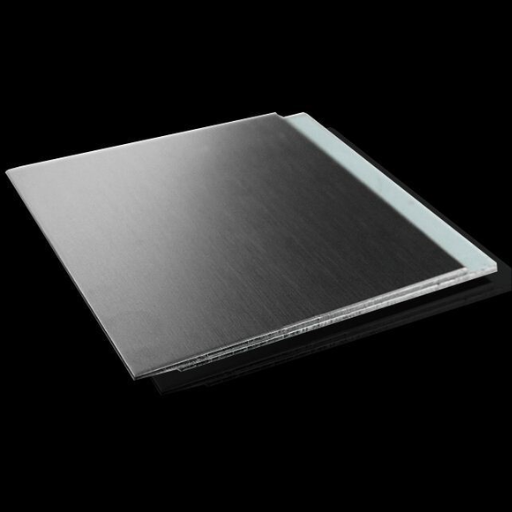
Currently there are several reputable suppliers and manufacturers of inconel 625 including:
- Special Metals Corporation – They are recognised as inventing most of the inconel alloys therefore they have quality inconel 625 that serves diverse industries.
- Haynes International – Another big player in the high-performance alloys business; Haynes International sells various product forms for inconel 625.
- Thyssenkrupp Materials NA – This global materials supplier provides Inconel 625 for multiple industries such as aerospace and chemical processing.
- ATI (Allegheny Technologies Incorporated) – ATI deals with advanced specialty metals where they supply their clients with inconels that work best in places where there is extreme temperature and corrosive nature
- Rolled Alloys – A provider of nickel based alloys offering an extensive inventory of products including plates,sheets,and bars made from Inconell 625 thereby giving them a competitive advantage by being able to supply orders quickly
These companies enable the availability of Inconel 625 across all industries, with robust supply chains and strong industry knowledge in order to support critical applications.
Top Inconel 625 Sheet Supplier in India
- Metline Industries – Metline Industries is a famous supplier and manufacturer of Inconel 625 sheets in India with different sizes and specifications that meet the demands of many industries. The sell high-quality products at reasonable prices, thus serving such sectors as aerospace, marine and chemical process.
- Sambhav Metal & Alloys – Sambhav Metal & Alloys supplies top quality Inconel 625 sheets ensuring strict quality control and material reliability. They provide fast delivery to their local and international customers as well as custom-made solutions for a variety of industry needs.
- Bhavya Steel – Bhavya Steel has an extensive stock of Inconel 625 sheets, designed to meet global quality standards. They provide superior grade sheets for use in critical applications, thus operating a strong distribution network across India and beyond.
These companies are recognized for dealing with advanced materials like Inconel 625 that result into superior products and services required by tough industrial processes.
Global Plate Supplier and Manufacturer Comparison
Comparing global suppliers and manufacturers of high-performance plates such as Inconel 625, three companies are noteworthy:
- Special Metals Corporation – Special Metals Corporation is a leading worldwide manufacturer of high performance alloys such as Inconel 625 plates. They have been recognized for innovativeness and quality adherence in providing materials that meet very strict specifications needed for critical applications in aerospace, chemical processing and nuclear industries.
- ATI (Allegheny Technologies Incorporated) – ATI is globally known to be a producer of advanced specialty materials including Inconel 625 plates which are known for their superior durability and performance. It serves various industries through its vast supply chain network and state-of-the-art manufacturing capability.
- Continental Steel & Tube Co. – This company is one of the major suppliers of Inconel 625 plates offering comprehensive material support solutions to diverse industrial needs. They are famous for having wide range stockholding, reasonable prices as well as providing tailored answers with an emphasis on quality and timely delivery.
These companies distinguish themselves through technological prowess, international quality standards compliance, and long history of delivering high-performance materials used in some of the most challenging applications around the globe.
Evaluating Quality and Certifications in Suppliers
Several factors must be regarded when assessing suppliers of high-performance plates, such as Inconel 625, for quality and certifications. The first one is to consider that adherence to internationally recognized quality standards like ISO 9001 and AS9100 demonstrates commitment towards maintaining consistent quality and continuous improvement process. For example, Special Metals Corporation stresses the fulfillment of strict industry standards that are prerequisite in aerospace, chemical processing, and nuclear applications too.
Similarly ATI boasts an advanced manufacturing technique that guarantees maximum toughness and performance of its products. This also distinguishes other supplies by confirm their capabilities through compliance with industry-specific certification such as NADCAP (National Aerospace and Defense Contractors Accreditation Program) which approves them for special manufacturing fields. Apart from this, Continental Steel & Tube Co. also reiterates on guaranteeing the right materials on time by providing numerous material certifications to suit different industrial sectors’ stringent requirements. To ensure that they get high-performance materials to satisfy their needs, buyers should concentrate on international certification, industry-specific standards, and demonstrated quality in supply chain management as emphasized by these key elements.
Inconel 625 Plates: Types and Forms Available
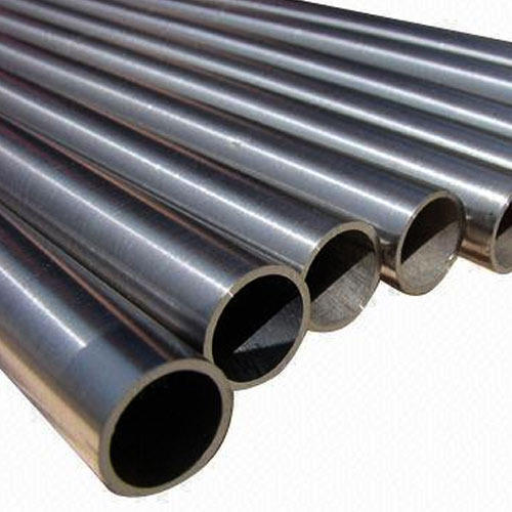
Different forms and types of Inconel 625 plates are available for various industrial applications. On the whole, these plates are available in hot-rolled, cold-rolled and fabricated forms. Hot rolled plates are normally thicker and used for heavy-duty applications. Thinner cold-rolled plates having a smoother surface finish are appropriate for precision and very tight tolerance applications. Besides, fabricated plates may be manufactured into customized shapes and sizes to meet specific requirements. As a result of these differences, they can be effectively applied in numerous fields ranging from aerospace to chemical processing.
Exploring Inconel 625 Chequered Plate and Shim Sheet
Inconel 625 chequered or treaded plate is designed to provide grip where it is required most – flooring, stair treads among others in industries settings. These properties include excellent resistance to corrosion and oxidation, high strength and durability at high temperatures which other grades of Inconel lack. The patterned profile minimizes the likelihood of slips and falls making it more suitable for critical safety uses within the marine sector, oil & gas industry as well as chemical plants.
Furthermore Shim sheets made from Inconel 625 find application in precise thickness adjustments that require high performance materials particularly in assemblies and systems such as those found in extreme conditions like space shuttles. These sheets exhibit excellent fatigue resistance as well as better thermal fatigue resistance hence ideal for aerospace purposes including automotive applications as well as power generation needs. Such items could also be realized using very thin configurations thus allowing fine calibration while maintaining robust properties like pitting / crevice corrosion resistance / stress-corrosion cracking characteristics inherent of Inconel 625 requirement.
Difference Between Perforated Sheet and Plain Sheet
Distinctive functionalities and features exist for perforated sheets and plain ones.
Perforated Sheet: Making a series of holes in different patterns is how these sheets are made. This design reduces their mass greatly while still retaining good strength, making them excellent for applications that require ventilation, filtering and noise absorption. Perforated sheets are widely used in architectural designs, HVAC systems, and industrial screening operations. The choice of a perforation pattern can be customized to meet specific functional and aesthetic requirements thus enhancing flexibility.
Plain Sheet: On the other hand, plain sheets have a smooth unaltered continuous surface with no punctures. They are commonly employed where one requires an uninterrupted solid barrier such as protective cladding, automotive body panels and construction materials. Plain sheets are tougher than holed ones; they last longer and easiest to cleanse.
In conclusion the preference between perforated sheet or plain sheet depends on aspects like weight considerations, ventilation property, structural integrity needs as well as aesthetic tastes in the particular application at hand.
Understanding 625 Coil and Strip Options
Popular for their remarkable versatility and high performance under extreme conditions, coils and strips made of Inconel 625 are commonly used.
625 Coil: This choice is known for its great oxidation and corrosion resistance in addition to its high strength and toughness. Inconel 625 coils are highly sought after in the aerospace, marine, and chemical processing industries as they come in different widths and thicknesses. They bear up well under intense temperatures and pressures, while being easily shaped or welded.
625 Strip: On another note, Inconel 625 strips have similar characteristics but are usually produced with narrower widths compared to coils. These materials find application in springs, gaskets, among other precision components because they can be modified without breaking easily. The strips’ inherent properties allow them take a beating from corrosive environments hence; making them indispensable for use at both very high temperatures as well as cryogenic applications.
Choosing between 625 coil or strip largely depends on dimensions, environmental conditions such as temperature extremes within the specification limits of the final product.
How to Choose the Right Inconel 625 Product?
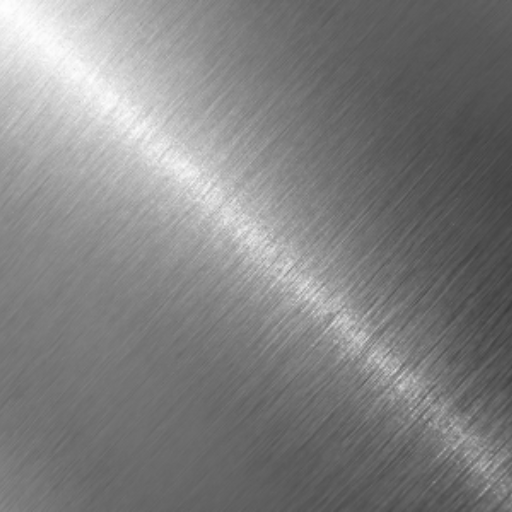
The following are some of the factors one should consider when selecting the right Inconel 625 product:
- Application Requirements: Evaluate your application’s particular needs, which encompass various environmental conditions. For example, if you are dealing with extreme temperature and high pressure applications, such a case will require materials that can withstand such conditions thus, Inconel 625 coil would be more effective due to its strong characteristics.
- Dimensions: The required dimensions for instance width thickness and length. This allows larger-scale applications where Inconel 625 coils come in different widths and thicknesses. If your project calls for precision components however, it is better to use Inconel 625 strips with narrower widths and gauges that are thinner.
- Formability and Weldability: The material’s formability and weldability must be taken into account if your application involves complex shapes or frequent welding. However both coils and strips are easily welded materials thus they offer excellent formability, but depending on specific project requirements one may prove superior over the other.
- Performance in Aggressive Environments: Finally assess how well these products withstand oxidation, corrosion as well as other aggressive environmental factors. However high resistance is afforded by both coils and strips although their application depends on whether it entails hot or cryogenic temperatures respectively.
By considering these aspects closely one can decide whether to apply Inconel 625 coil or strip depending on their purpose.
Considerations for Selecting Alloy 625 Plates
Several important factors should be considered in selecting Alloy 625 plates for your application to ensure optimal performance and durability:
- Mechanical Properties: These include high tensile strength, robustness, as well as toughness. Such characteristics enable these materials to be used in much demanding applications especially in aerospace, marine and chemical processing industries.
- Corrosion Resistance: One of the most impressive properties of alloy 625 is its ability to resist corrosion. In addition, this material has a great value when used in environments where there is exposure to seawater, acidic media or other corrosives mainly because it offers high nickel and chrome content that allows superior resistance to oxidation plus corrosion degradation.
- Temperature Performance: Alloy 625 plates can perform well over various temperature ranges. They retain their strength even when exposed to higher temperatures besides having cryogenic properties. This proves very useful for instance in turbine engines that generate high temperatures and cryogenic storage tanks which are kept at very low temperatures.
Thus you will be able to weigh whether or not Alloy 625 plates are suitable for your specific application requirements by considering these factors; mechanical properties, corrosion resistance and temperature performance.
Matching Specifications with Use Cases: ASTM, UNS N06625, AMS 5599
Different applications require different material specifications for Alloy 625 plates. While choosing an appropriate use case, it is important to follow the material specifications. The commonly used standards include:
- ASTM (American Society for Testing and Materials): ASTM B443 is one of the most significant compositions and mechanical properties standard for Alloy 625 plate. This standard ensures that materials are able to meet strict requirement needed for aerospace application, chemical processing plant and power generation unit. Many professionals consult with this specification when they need to be sure of the reliability of Alloy 625 plates as structural components and equipment subjected to high stress, in corrosive environment.
- UNS N06625: Unified Numbering System (UNS) N06625 is a number code given to this nickel based alloy. It provides a universal identification system to its composition and properties across different manufacturers so as to make them uniform and reliable for use by various suppliers. The important implication of this standard is that it assures compatibility in high risk investments such as seawater systems and aerospace applications.
- AMS 5599 (Aerospace Material Specification): AMS 5599 specification is widely used in the aerospace industry for controlling fabrication methods and quality of Alloy 625 plate. This guideline centers on attaining high level tensile strength, resilience or resistance to oxidation or corrosion which is good in turbine engines, exhaust system among other critical parts of spaceship.
With these standards—ASTM B443, UNS N06625, AMS 5599—you can choose Alloy 625 plates matched your application requirements with confidence that will provide excellent performance over an extended period.
Cost and Availability Factors
Cost and availability of Alloy 625 plates may significantly differ on several grounds. The overall cost can be affected by market demand, geopolitical factors, and the price of nickel and other raw materials. In general, however, prices for specialty or aerospace-grade applications like AMS 5599 tend to be high because they are accompanied by strict quality inspections and performance requirements.
Availability is mostly dependent on the supply chain as well as manufacturing competences of producers. Major suppliers usually keep stocks of standard sizes and designs which allow quick delivery to customers. Nonetheless, production complexity may necessitate longer order lead times for custom dimensions or large volume purchases. Furthermore, global supply chains disruptions such as trade barriers or logistic impediments could also affect the cost and availability. To avail top-notch Alloy 625 plates that meet your critical application needs, partner with reputable suppliers who comply with established standards like ASTM B443, UNS N06625, and AMS 5599.
Frequently Asked Questions (FAQs)
Q: What is Inconel 625 steel plate?
A: Inconel 625 sheet is a nickel-based alloy that has high strength, good workability and excellent resistance to corrosion. It can be used in various industries.
Q: How is Inconel 625 hot rolled plate different from cold rolled sheet?
A: Inconel 625 hot-rolled plates are made by heating the material above the recrystallization temperature then passing it through rolls, causing a rough surface finish. On the other hand, Inconel 625 cold rolled sheets are processed below the recrystallization temperature to provide a smoother and neater finish.
Q: What does the term “ASTM B443 Inconel 625” refer to?
A: ASTM B443 is the standard specification for nickel-chromium-molybdenum alloy (Inconel 625) plate, sheet and strip. It ensures that the materials conform to industrial requirements in terms of their composition and mechanical properties.
Q: What are the common applications of 625 hot rolled plates?
A: 625 hot rolled plates find use in aerospace, marine and chemical processing industries due to their outstanding mechanical characteristics as well as resistance to severe environments. They are also utilized in production of equipment or components requiring high degree of strength and resistance against corrosion.
Q: How does 625 perforated plate benefit industrial applications?
A: Besides being strong, 625 perforated plate offers great versatility. Its holes promote better air and liquid flow making it suitable for filtration, ventilation or acoustic applications at same time retaining its tensile properties like those made from Inconel 625.
Q: What is the significance of Inconel UNS N06625 in relation to this alloy?
A: UNS N06625 is the unified numbering system (UNS) designation for Inconel 625. This allows consistency across different manufacturers and applications by standardizing its composition as well as properties of this alloy.
Q: How do Inconel 625 clad plates enhance material performance?
A. Incidentally there are inconel clad plates containing a core substrate material with an outer layer made up of inconel.Normally, these have lower costs while still maintaining some vital mechanical attributes but having improved surface features such as better rates of corrosion.
Q: Why are Inconel DIN 2.4856 plates highly valued in industrial projects?
A: Inconel DIN 2.4856 plates are valued for their exceptional resistance to oxidation and corrosion, even at high temperatures. This makes them suitable for challenging environments such as chemical processing, marine, and aerospace applications.
Q: What is the role of alloy 625 shim in engineering applications?
A: Alloy 625 shim is used to adjust the spacing or alignment of components in engineering applications. Its excellent mechanical properties and resistance to extreme environments ensure precision and reliability in critical assemblies.
Q: Who are the leading manufacturers of Inconel 625 plates and sheets?
A: Leading manufacturers of Inconel 625 plates and sheets include global companies specialized in high-performance alloys like Special Metals Corporation, Haynes International Inc., and ATI Metals, among others. They are known for producing quality Inconel 625 products that meet various industry standards.









